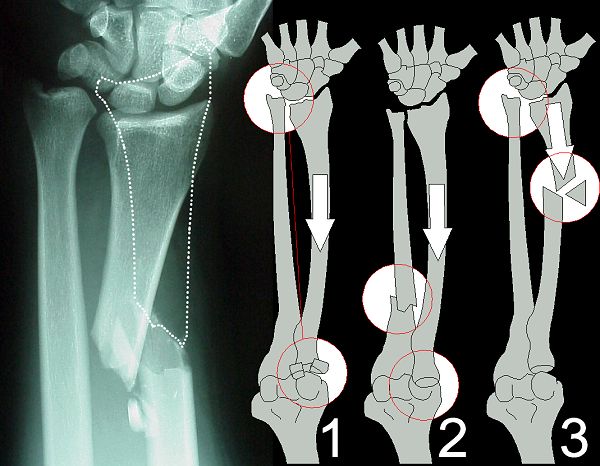

Figure Legend: Combined fractures include
three special combinations of injury: the Essex-Lopresti lesion (1),
Monteggia fracture-dislocation (2), and Galeazzi fracture-dislocation (left
and 3). Galeazzi fracture-dislocation refers to a fracture of the shaft
of the radius associated with dislocation of the distal radioulnar joint.
Monteggia fracture-dislocation refers to fracture of the ulna with dislocation
of the radial head. Each of these fracture-dislocation patterns is best
treated with open fracture reduction and closed treatment of the dislocation.
Essex-Lopresti lesion refers to longitudinal disruption of the radioulnar
interosseous membrane and proximal migration of the radius associated with
fractures involving the proximal radioulnar joint, the distal radioulnar
joint, or both sites. The most common presentation of Essex-Lopresti is
associated with radial head excision for fracture, resulting in ulnocarpal
impingement syndrome. Treatment is controversial. When diagnosed acutely
in the context of an unreconstructable radial head fracture, Essex-Lopresti
justifies use of a temporary radial head implant. Late surgical options
include ulnar shortening osteotomy or the developing technique of ligament
reconstruction with a tendon graft.
| e-Hand | Go Back | Search | Textbook |